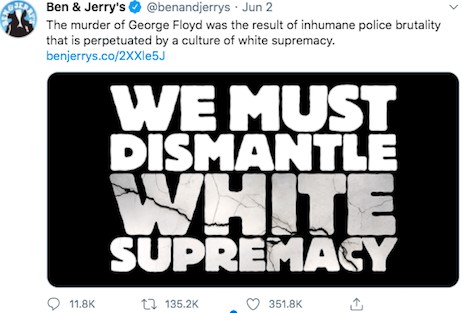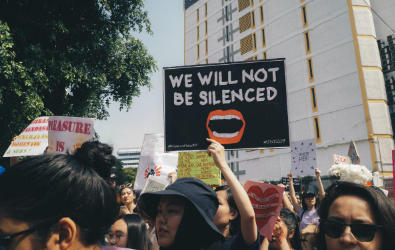Nonprofits and socially responsible companies seek to make a positive impact within their communities and among the people they serve. And in today’s social climate where calls for racial justice and equality for all are growing louder, many organizations are eager to go beyond their core missions to support social movements that affect everyone.
But by publicly voicing or showing support for polarizing causes, organizations might alienate a select subset of their audience that may not share those same values. We saw this recently play out with three well-known food brands which, whether inadvertently or not, entered the political boxing ring.
Ben & Jerry’s, a B Corp company, recently hosted a webinar on Brands Becoming #BLM Allies. Chris Miller, Ben & Jerry’s Global Activism Strategy Manager, talked about the powerful opportunity brands and companies have to be part of driving important changes in the world. At the heart of the conversation, Chris shed light on statements Ben & Jerry’s made across its social media platforms about the death of George Floyd. This tweet is an example:

This statement received both praise and criticism. It’s bold and while many brands and companies might agree with the sentiment, it might not work for them to be equally as bold. This works for Ben & Jerry’s because, as Chris explained, this statement is aligned with how the brand has portrayed its values to the public since the founders established the company. Therefore, it came as no surprise to many people that the popular ice cream brand would make a such a statement (it’s almost expected of them). As for their critics, Chris shared that Ben & Jerry’s knew they might receive some negative responses, but they were OK with that reality because the statement was aligned with their brand and values.
GOYA found itself front and center of a heated political debate. As the New York Times reported, GOYA has a history of sponsoring Dominican art shows, mariachi contests and soccer programs. That’s why it came as a shock to many people when its Chief Executive Robert Unanue praised President Trump when the White House rolled out its Hispanic Prosperity Initiative. The praise spurred boycotts of GOYA products by many Latinx people, a group that President Trump has offended in the past with controversial words and policies about immigration. The battle didn’t end there. Ivanka Trump responded to the boycott by tweeting a photo of herself posing with GOYA beans, a move that sparked reaction from Trump’s supporters to buy the brand’s products. Regardless of the reactions from either group, the fact that Unanue supported President Trump stirred things up because it went against what consumers typically think about GOYA as a brand.
Trader Joe’s had to defend its naming conventions after more than 5,000 people signed an online petition that called their use of terms like “Trader Giotto’s,” “Trader Jose’s” and “Trader Ming’s” racist packaging. As CNN reported, the company pushed back, saying their buying team started using the names decades ago as a fun way to show appreciation for other cultures. Trader Joe’s put out this statement: “We want to be clear: we disagree that any of these labels are racist. We do not make decisions based on petitions.” The statement, while assertive, hasn’t dissuaded support for the brand since the decision is consistent with the brand’s use of humor to make shopping a fun experience.
An organization has every right to support a cause or political candidate of its choosing and to stand up for the decisions its team makes as part of its branding. But there is one lesson to learn from each of these examples – before a company supports a cause or engages in political movements, its leaders must be sure decisions are in line with their brand and the values the organization has already set for itself.
While it’s never the intent for organizations to alienate customers, standing up for certain causes might have the potential to do so. For some organizations, standing up for something they believe in is worth the risk.


